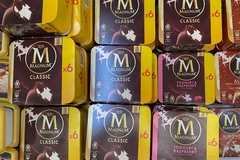
- Industry news
Industry news
- Category news
Category news
- Reports
- Key trends
- Multimedia
- Journal
- Events
- Suppliers
- Home
- Industry news
Industry news
- Category news
Category news
- Reports
- Key trends
- Multimedia
- Events
- Suppliers
Mars Launches Deforestation Reduction Policies

23 Jan 2015 --- Mars, Incorporated has launched three new policies aimed at reducing deforestation in its beef, soy, paper and pulp supply chains.
These policies fulfill a commitment made in its Deforestation Policy announced last year and outline clear targets that focus on the raw materials offering the biggest opportunity to reduce the impact that Mars has on sensitive forest lands. In line with its existing palm oil policy, these policies are part of a broader Mars effort to protect forests, biodiversity, minimize the carbon footprint of its supply chain and respect human rights.

“Deforestation causes about 15% of wobal green house gas emissions, decreases biodiversity, disrupts water cycles, increases soil erosion and poses severe social and economic problems,” says Barry Parkin, Chief Sustainability Officer, Mars, Incorporated. “Mars is committed to sustainably sourcing the key raw materials that are driving deforestation. By setting sustainable standards like these across our supply chain, Mars is working to bring real solutions to the complex problem of deforestation.”
Reducing deforestation extends beyond focusing on raw material supply chains, as Mars will continue to be actively engaged with government, industry, including the Consumer Goods Forum and civil society stakeholders to drive change collaboratively. These policies compliment Mars’ already existing sustainability commitments in ensuring a 100% certified supply chain on cocoa (by 2020), fish (by 2020), coffee & tea and its human rights policy.
By the end of 2017, 100% of Brazilian beef purchases will be from suppliers who are able to demonstrate that, when beef is coming from the Amazon Biome, it is not associated with primary forest clearance or who have plans in place to become able to do so.
By the end of 2016, 100% of virgin pulp and paper-based packaging will be traced to at least country of origin and by the end of 2020, 100% of pulp and paper-based packaging will be purchased from certified, verified or recycled sources.
By the end of 2017, 100% of the soy Mars purchases in Brazil will be certified by a third party verification system such as RTRS or ProTerra.










